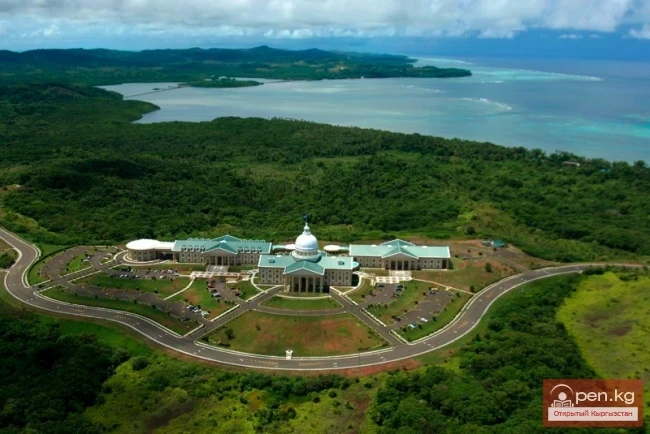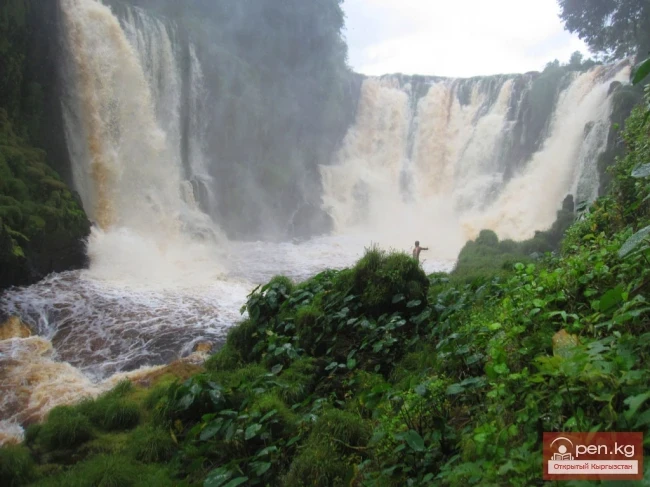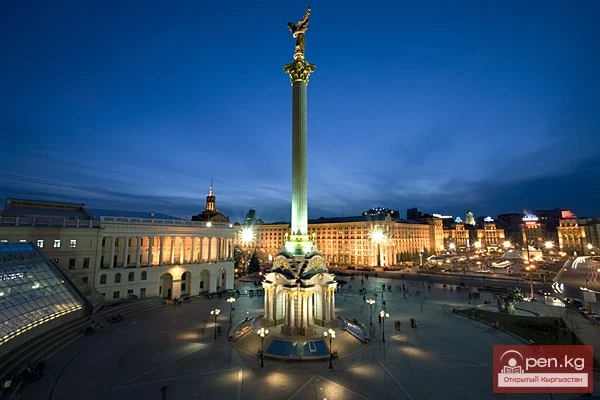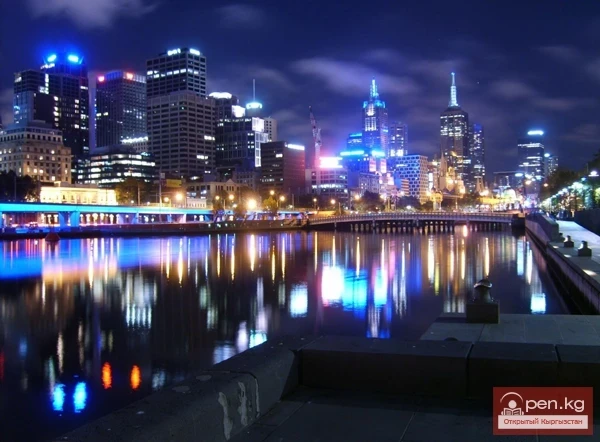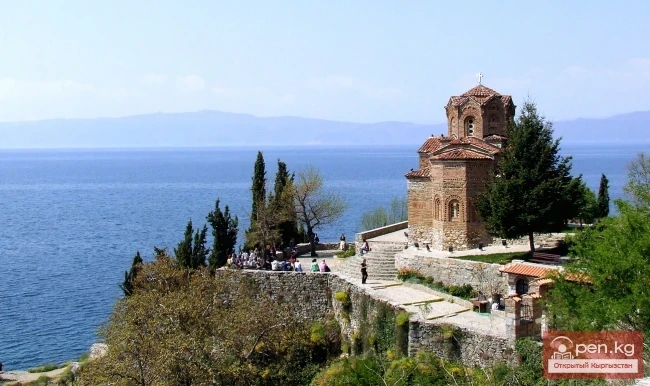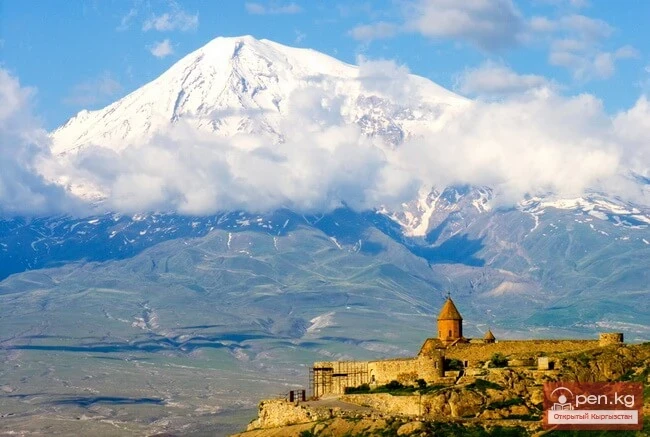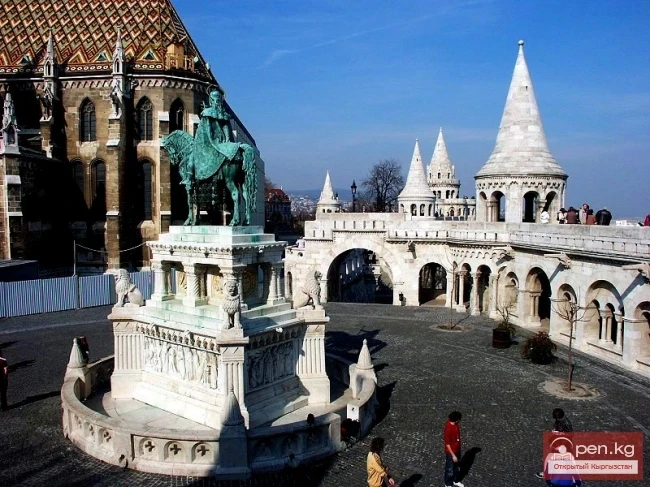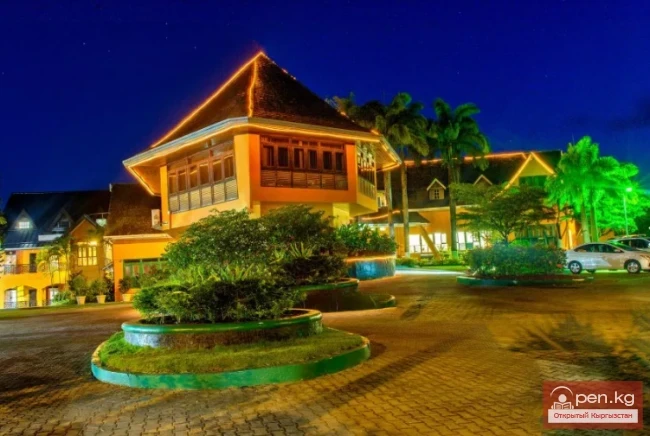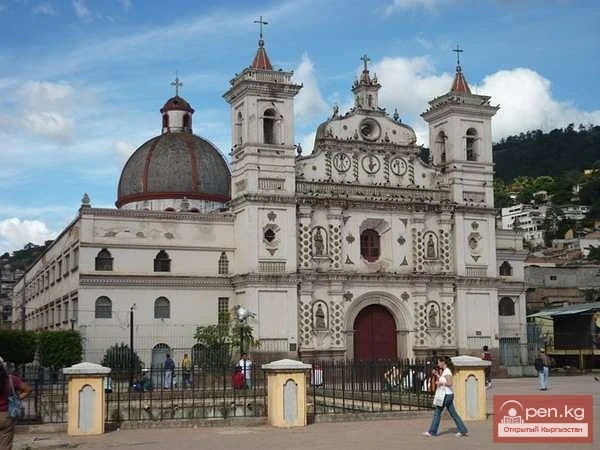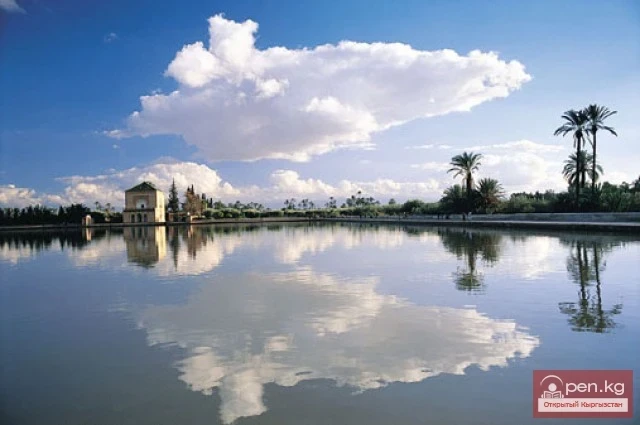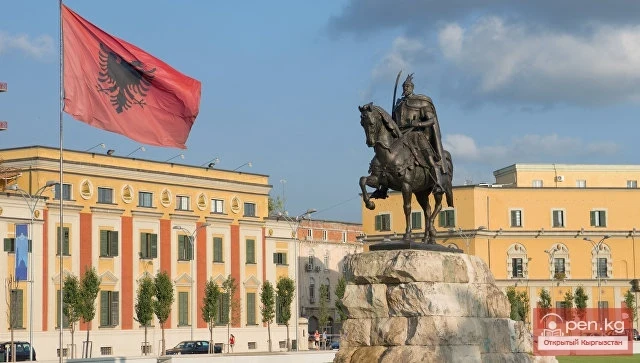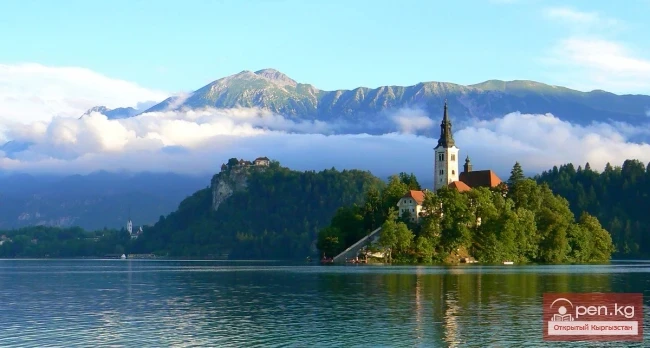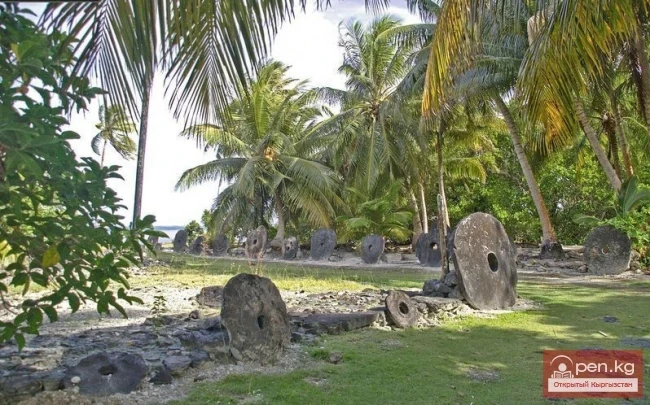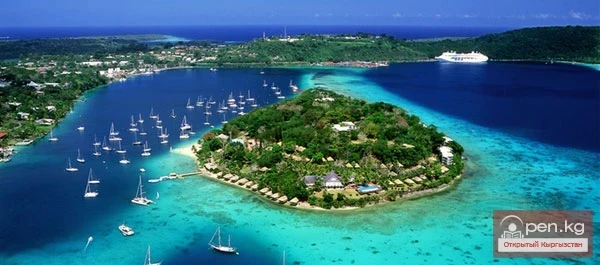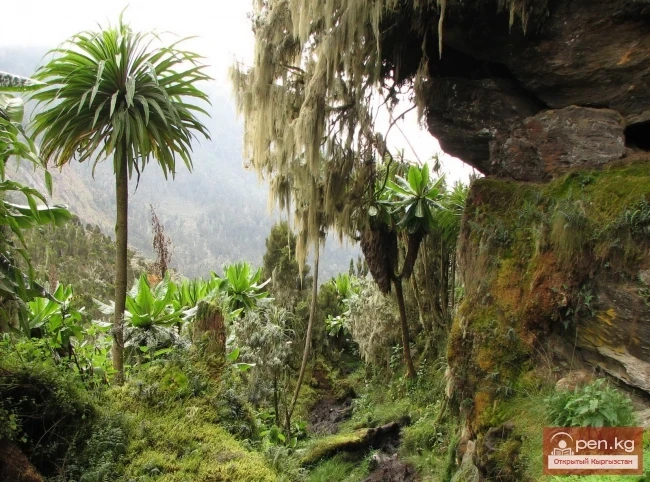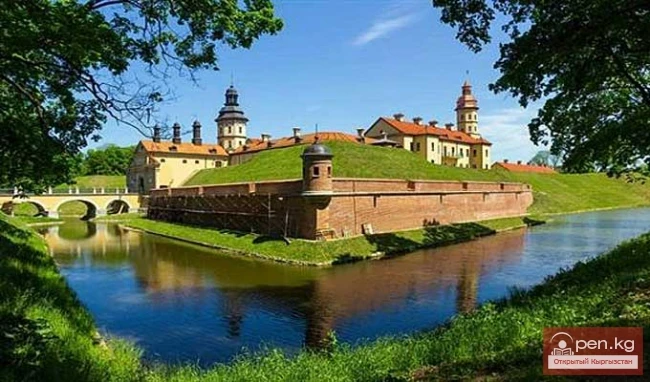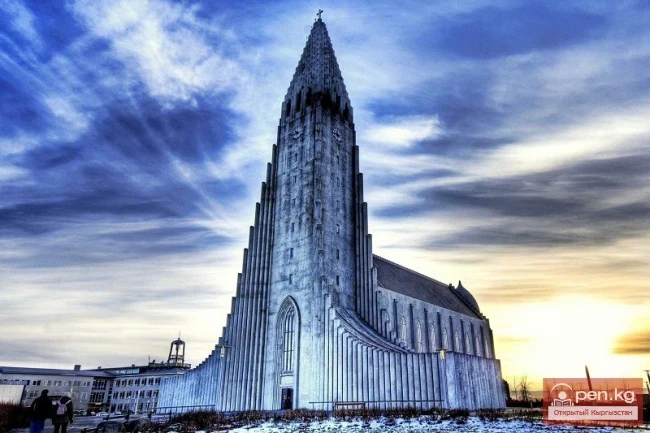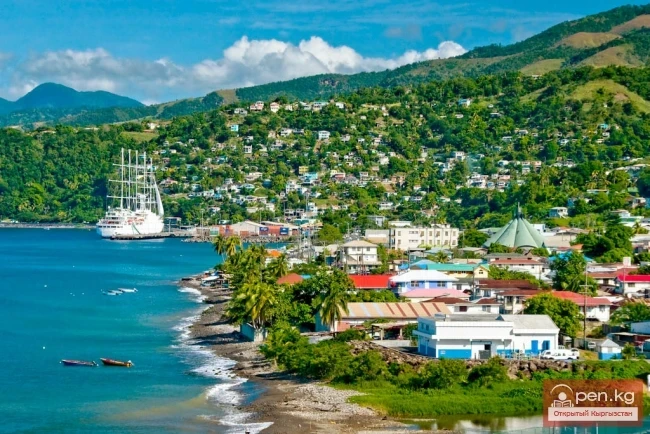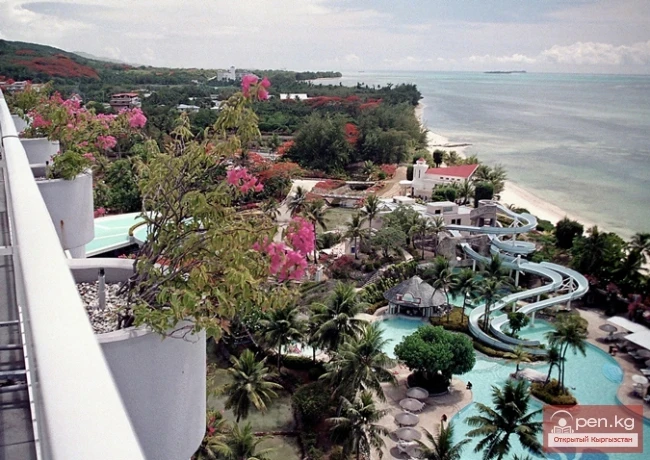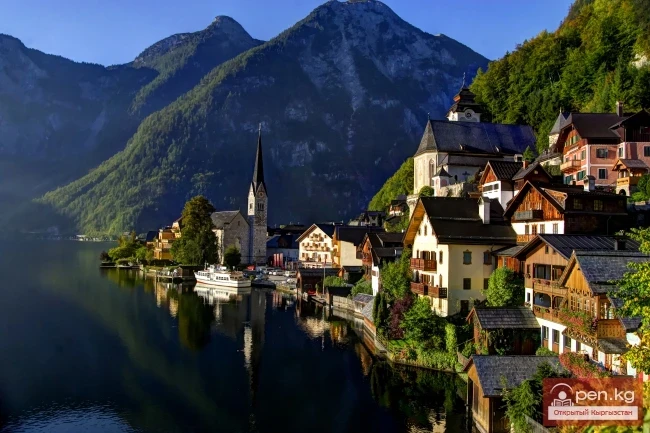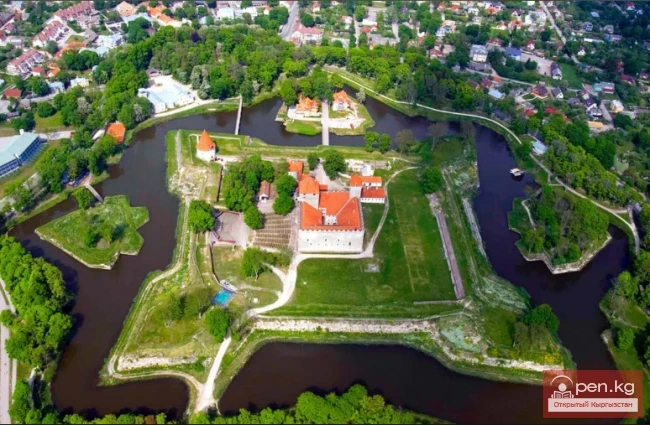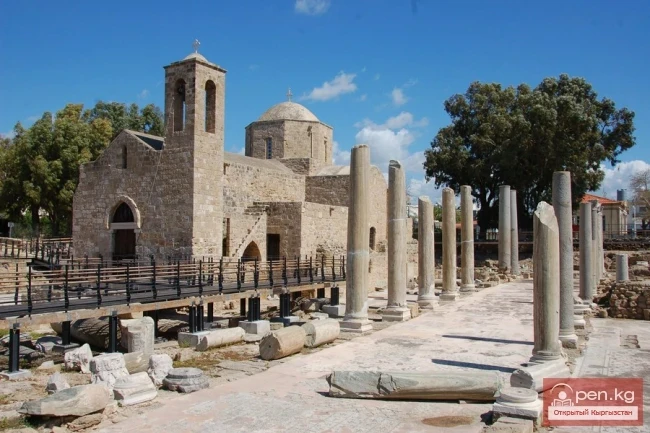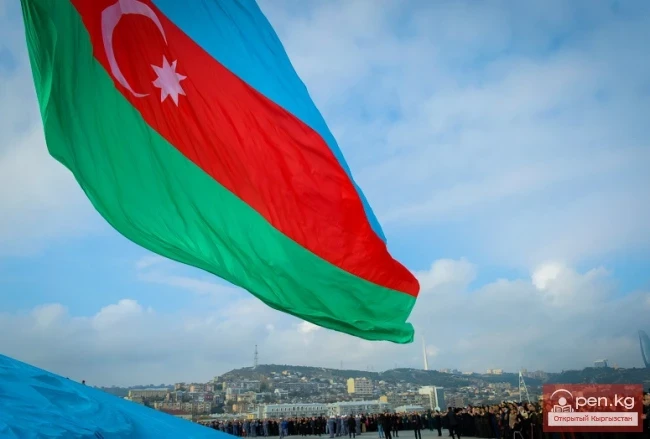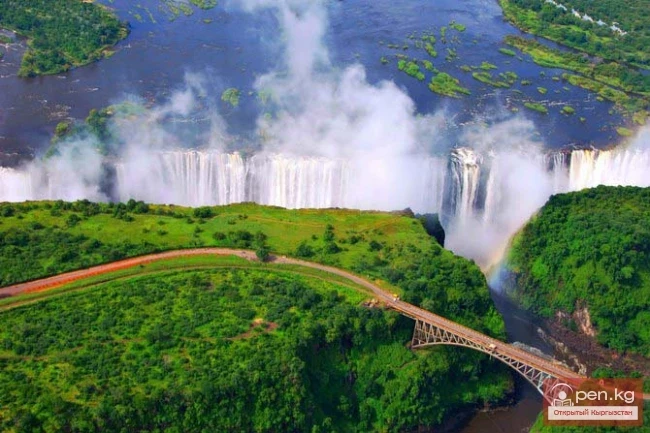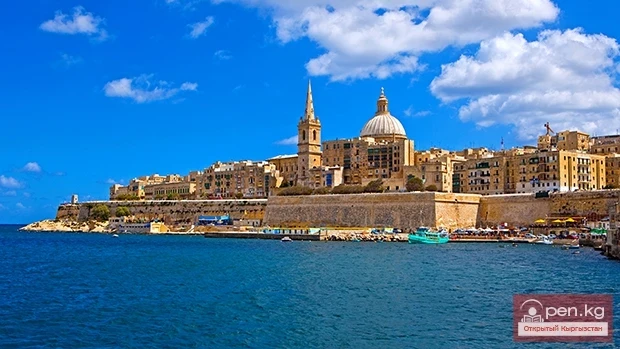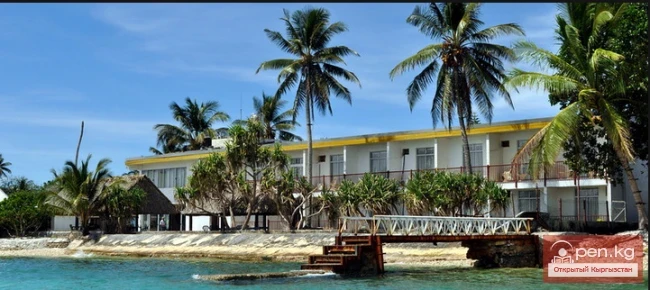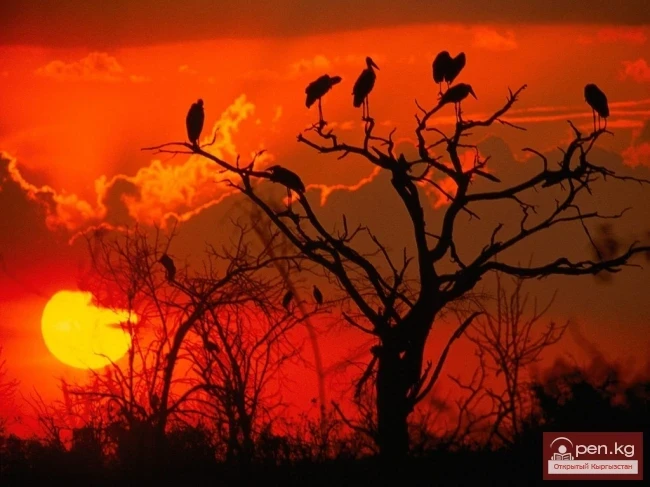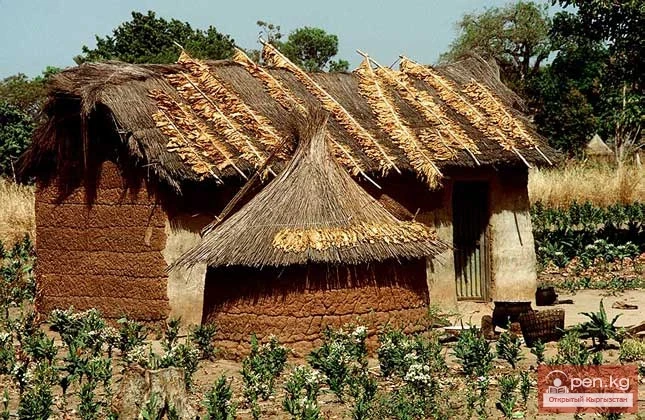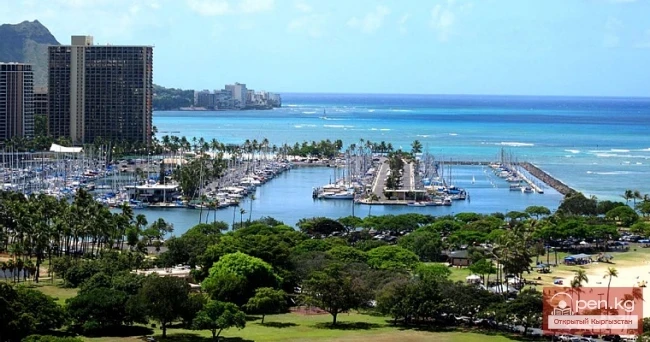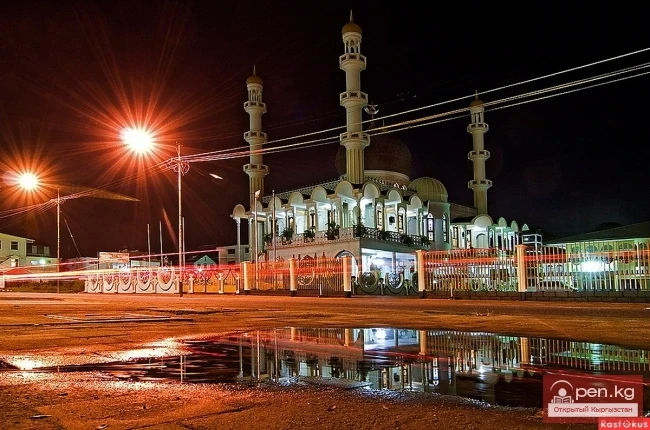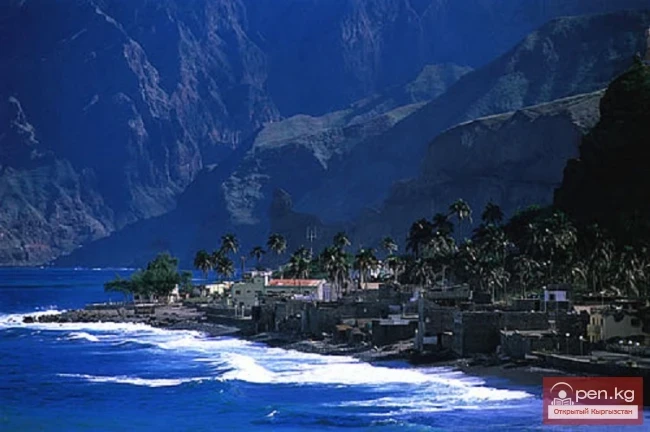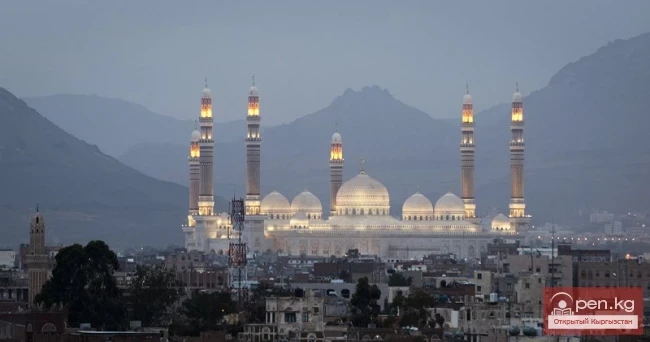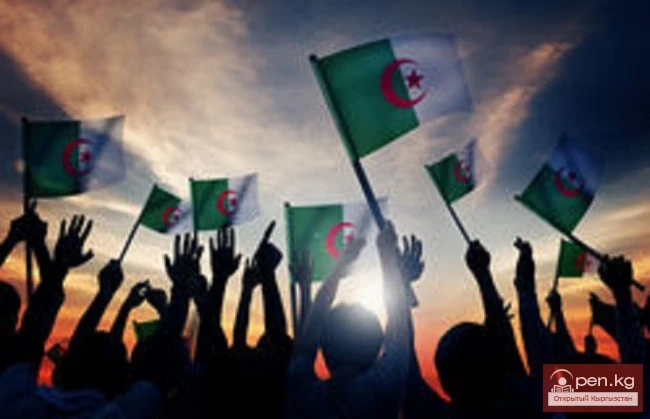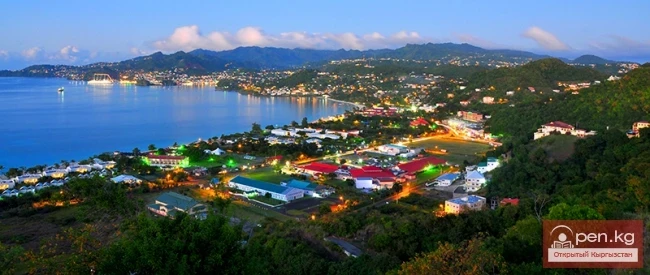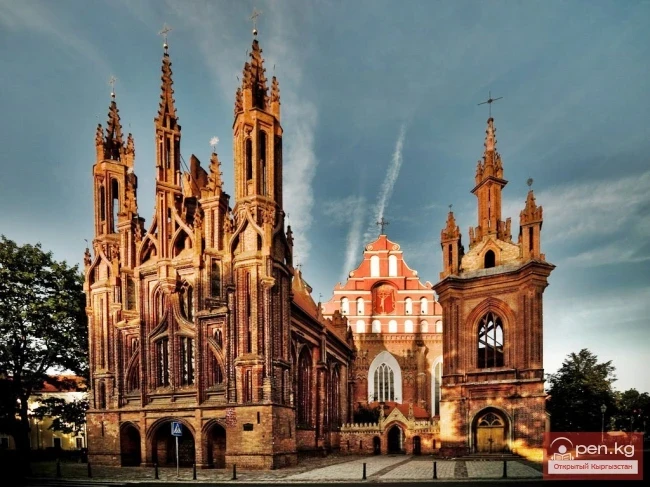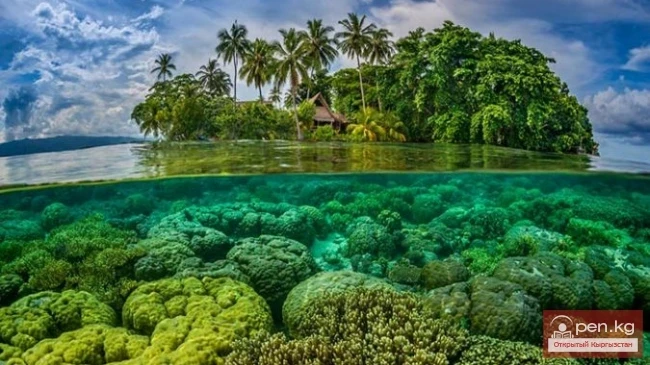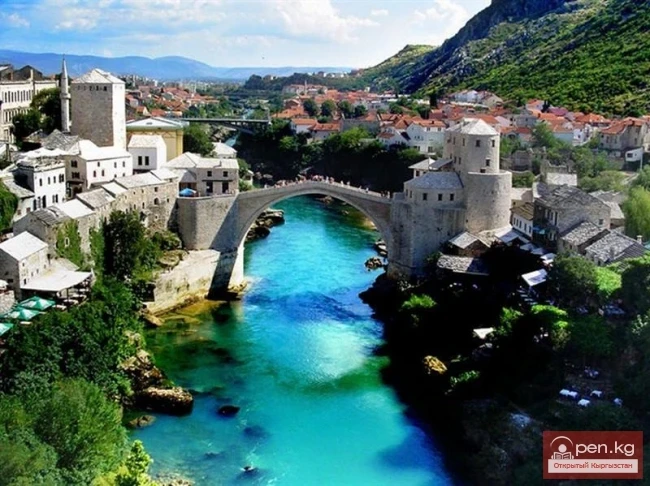
Bulgaria. Republic of Bulgaria
A state in southern Europe in the northeastern part of the Balkan Peninsula. Area - 110.9 thousand km². Capital - Sofia (over 1 million), major cities: Plovdiv, Varna, Burgas, Ruse. The main administrative-territorial unit is the municipality. The country is divided into 28 regions. Population - 7.761 million; mainly (85%) Bulgarians, as well as Turks (10%), Roma, Armenians, Russians, Greeks, and others. The official language is Bulgarian. The traditional religion is Orthodoxy. The currency is the lev.
The date of establishment of diplomatic relations between Russia and Bulgaria is July 7, 1879 (diplomatic relations with the USSR - July 23, 1934, interrupted on September 5, 1944, restored on August 14, 1945). On August 4, 1992, the Russian-Bulgarian Treaty on Friendly Relations and Cooperation was signed.
The national holiday is March 3 - the Day of the Liberation of Bulgaria from Ottoman rule and the restoration of statehood (1878).
According to the constitution (1991), Bulgaria is a "republic with parliamentary governance." The head of state is the president, elected on the basis of universal and direct suffrage for a term of 5 years. The President of Bulgaria is Georgi Parvanov. Elected on November 18, 2001, he took office on January 22, 2002. The permanently functioning highest legislative authority is the unicameral National Assembly (240 deputies), elected for a term of 4 years. The National Assembly was elected on June 25, 2005. The Chairman of the National Assembly is Georgi Pirinski.
The left-center coalition "For Bulgaria," led by the Bulgarian Socialist Party (BSP), gained a majority in parliament with 82 seats. It is followed by the National Movement "Simeon II" (53 seats), the "Movement for Rights and Freedoms" (34 seats), and the nationalist coalition "Attack" (21 seats). The right coalition of the United Democratic Forces, led by the Union of Democratic Forces, received 20 parliamentary mandates.
The highest executive authority is the Council of Ministers. On August 16, 2005, the parliament elected a government headed by Prime Minister Sergey Stanishev.
Main political parties: The Bulgarian Socialist Party (BSP). The successor to the Bulgarian Communist Party, which changed its name in April 1990 following a party-wide referendum. According to the new charter adopted in June 1994, it is a parliamentary party of democratic socialism. After the left's victory in the parliamentary elections in June 2005, the BSP again became the most influential party. The Chairman of the BSP's Supreme Council is Sergey Stanishev. The National Movement "Simeon II" (NDSV) is an electoral coalition created in April 2001. In April 2002, it was transformed into a party of the same name. The Chairman of NDSV is S. Saxe-Coburg-Gotha. The Movement for Rights and Freedoms (DPS) is a socio-political organization formed on January 4, 1990, representing the interests of Bulgarian ethnic Turks and Muslims. The Chairman of DPS is Ahmed Dogan. The Union of Democratic Forces (SDS) was formed on December 7, 1989, as an anti-communist movement. In February 1997, it was transformed into a party with a Christian-democratic ideology. It is a member of the European People's Party and the European Christian Democratic Union. The Chairman of SDS is Peter Stoyanov. The Democrats for a Strong Bulgaria (DSB) party was formed as a result of a split in SDS in February 2004, led by former Prime Minister Ivan Kostov. The Union of Free Democrats (SSD) was created in December 2001 by some former SDS members, led by Stefan Sofiyanski. The Bulgarian Agrarian National Union - People's Union (BZNS-NS) was formed in July 1997. The General Secretary of BZNS-NS is Anastasia Dimitrova-Mozer. "Attack" is a nationalist coalition formed in April 2005, led by Volen Siderov.
The largest and most influential trade union associations are the Confederation of Independent Trade Unions of Bulgaria and the Confederation of Labor "Podkrepa."
The oldest inhabitants of Bulgaria are the Thracians. By the 1st century, the territory they occupied was conquered by Rome, and in 395 it became part of the Byzantine Empire. In the mid-6th to early 7th centuries, Slavic tribes settled here. In the second half of the 7th century, proto-Bulgarians (Turkic tribes from the Azov region and North Caucasus) appeared in the northeastern Balkans. In 681, a Slavic-proto-Bulgarian state - the First Bulgarian Empire - was formed between the Balkan ridge and the lower reaches of the Danube. In the 7th to 10th centuries, the Bulgarian nationality developed, significantly influenced by the adoption of Christianity in 865 and the introduction of Slavic writing in 886. From 1018 to 1186, Bulgaria was under Byzantine rule, and from 1187 to 1396, the Second Bulgarian Empire existed. At the end of the 14th century, Bulgaria was conquered by the Ottoman Empire.
It was liberated after Turkey's defeat in the war with Russia (1877-78). According to the San Stefano Peace Treaty of March 3, 1878, it received the status of a self-governing principality. In accordance with the decisions of the Berlin Congress (July 1878), it was divided into two parts, resulting in almost half of the population being outside the country. The first prince elected was the German prince Alexander Battenberg, who was related to the Romanov family and the British royal family. In 1887, he was succeeded on the throne by Prince Ferdinand I from the Saxe-Coburg-Gotha dynasty, who ruled until his abdication in October 1918, after which his son - Tsar Boris III - ruled until August 1943.
Bulgaria participated in the first (1912-13) and second (1913) Balkan Wars and consequently suffered significant territorial losses. In World War I, it sided (from 1915) with Germany and Austria-Hungary. According to the Treaty of Neuilly (November 27, 1919), it lost a significant part of its territory and access to the Aegean Sea. At the beginning of World War II, it maintained neutrality, but in March 1941, it joined the Tripartite Pact, although it did not participate in military actions against the USSR. On September 8, 1944, after the entry of the Red Army into Bulgarian territory, its government declared war on Germany. On September 9, 1944, the monarchical regime was overthrown, and the government of the Fatherland Front, in which the communists played a leading role, came to power. From October 1944, the Bulgarian army participated in military actions on the Soviet-German front as part of the 3rd Ukrainian Front.
On September 15, 1946, Bulgaria was proclaimed a people's republic. Until 1991, the Bulgarian Communist Party was in power. At the end of 1989 - beginning of 1990, a change of political regime occurred in the country. A course was taken towards democratic transformations, a transition to a market economy, and accelerated integration of the country into European and Euro-Atlantic structures. An attempt made by the cabinet of ministers in the mid-90s to implement a model of a socially oriented market economy ended in a sharp political crisis and early parliamentary elections in early 1997.
The accumulated negative trends and problems over several years, along with the nature of new transformations, have affected the development of the Bulgarian economy. The early 90s were marked by increasing disproportions, a decline in production in industrial sectors, including those previously considered priorities (electrical engineering, electronics, machine engineering, chemical, petrochemical, oil refining, tobacco), disruption of the consumer market, and rapidly growing domestic debt.
The implementation of a new agrarian policy in the country, based on the return of land to former owners, was accompanied by a decline in agricultural production overall, primarily due to the liquidation of previous collective farms, a reduction in sown areas, and livestock. The collapse of traditional foreign trade ties in the context of a lack of domestic raw materials and energy resources created additional difficulties in overcoming the consequences of the crises of the 90s.
In recent years, the country's economy has gained relative financial stability. The stable exchange rate of the Bulgarian lev, the level of the discount rate, and foreign currency reserves are maintained. External debt has decreased somewhat, and inflation in 2004 was 5.6%. Much of these results were ensured by the operation of the "currency board," established in the country in 1997, as well as through external loans from the World Bank, IMF, and EBRD.
The average salary is 302 levs, and the pension is 90 levs.
Among the acute problems are unemployment (about 12%), insufficient social security for broad segments of the population, and emigration, especially of young people.
The volume of Bulgaria's foreign trade in 2004 amounted to 38.4 billion levs with a significant negative balance (over 7 billion levs).
Main foreign trade partners: Germany, Italy, Greece, Russia, and Turkey.
A pressing issue for the Bulgarian economy remains external debt - about 13.1 billion dollars.
Unfavorable demographic trends persist. The natural population growth is negative. Mortality exceeds birth rates, and in 2004, the country's population decreased by 0.5%. Child mortality is four times higher than in the EU. The average life expectancy is 72 years.
A member of the UN since 1955, as well as many other international and regional organizations and institutions. On May 5, 1992, Bulgaria was admitted to the Council of Europe. Since 1994, it has been an associated partner of the CEFTA, on March 29, 1993, it signed a free trade agreement with EFTA, and on July 17, 1998, with CEFTA. Since April 2004, it has been a member of NATO. Since 1995, it has been an associated member of the EU. Bulgaria is a member of the IMF and the World Bank, developing cooperation with the EBRD, and was admitted to the WTO in December 1996.
Bulgaria seeks to play an active role in cooperation processes in Southeast Europe. It was the organizer of the first meeting of foreign ministers of Balkan countries (July 1996, Sofia), a practice that has become regular. Bulgaria attaches great importance to expanding military-political interaction with NATO member states.
In the economy of the country, 3.2 million people are employed, including more than 52% in the private sector.
Bulgaria has limited mineral resources, among which the most significant are gold, lead-zinc, and copper ores, brown and hard coal, table salt, quartz sand, and marble. Bulgarian land is rich in healing mineral waters (about 500 springs).
Exports include machinery products, calcined soda, chemical fertilizers, pharmaceuticals, tobacco, vegetables, and fruits in fresh and processed forms. Imports are dominated by energy carriers, raw materials for metallurgy and chemical industries, cars, and consumer goods.
The main modes of transport in Bulgaria are rail and road, accounting for 38% and 26% of all transport, respectively.
The length of railway tracks is 6.5 thousand km, of which 63% are electrified, and paved roads total 37.3 thousand km. Almost all populated areas of the country have bus services. Bulgaria has a developed maritime and air fleet, with 81 international and 8 domestic air routes, and air transport is provided by Bulgaria Air and private airlines.
An important sector for the country is tourism. Every year, Bulgaria is visited by 4 million foreigners. The most popular resorts are "Golden Sands," "St. Constantine," "Albena" (Varna), "Sunny Beach" (Burgas), and mountain resorts "Borovets," "Pamporovo," "Bansko."
Bulgaria has a solid scientific and cultural potential. The development of higher education is moving towards the implementation of modern European academic trends in training specialists. More than 230 thousand students are enrolled in 42 higher educational institutions.
Among the largest universities are Sofia University named after St. Clement of Ohrid, Plovdiv University named after Paisii Hilendarski, Veliko Tarnovo University named after Saints Cyril and Methodius, and Ruse University named after Angel Kanchev.
Nineteen central newspapers are published daily, the largest of which are "24 Hours," "Duma," "Monitor," "Trud," "Dnevnik," "Standard," and "Sega." Television and radio coverage reaches over 90% of the country's territory, alongside central television, there are 4 local television centers (in Varna, Plovdiv, Ruse, and Blagoevgrad). The largest news agency is the Bulgarian Telegraph Agency (BTA).
